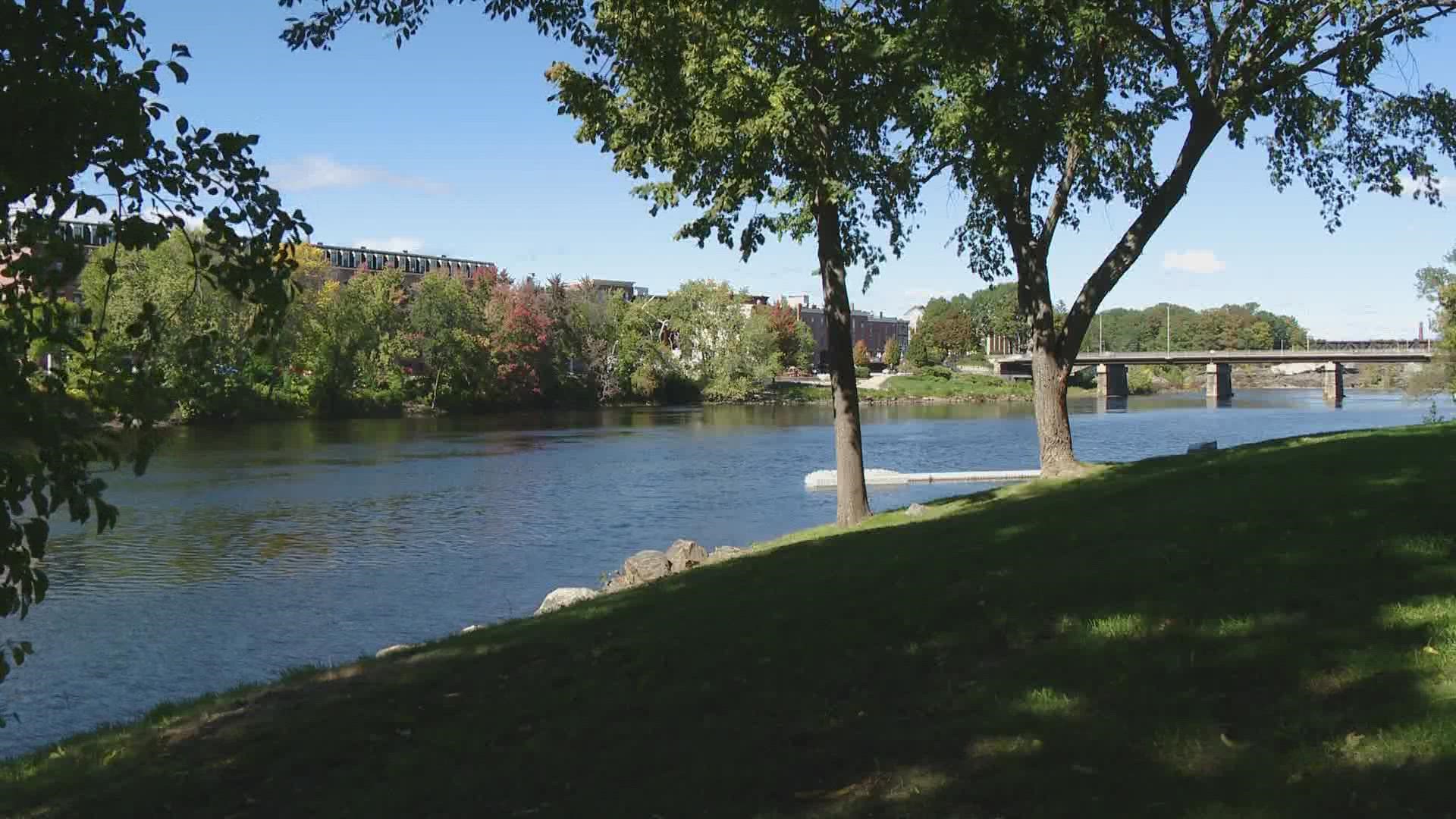LEWISTON, Maine — If you weren’t around Maine in the early and middle parts of the 20th century, it’s hard to imagine the stench and filth you would have encountered every single day along the state’s major rivers.
One major source of pollution was untreated sewage.
“All the towns were dumping in their sewage, and it was just going to the ocean,” Pete Didisheim, interim CEO of the Natural Resources Council of Maine, said.
The other prime source of pollution was chemical discharges from industrial plants, especially paper mills. The chemicals reduced oxygen in the water, leaving rivers with large dead zones where no fish could survive.
The sewage, the putrid odors, the brown foam that piled up on the water — they were all familiar to people who lived the near the rivers but never, ever swam or fished in them.
“I’ve spoken to wardens who used to be responsible for parts of this river,” Didisheim said, looking out on the Androscoggin. “They would get in the boat, go out, and they would literally throw up [because] it smelled so bad.”
For Sen. Ed Muskie, D-Maine, the issue of water pollution was personal. Born in 1914, he grew up along the Androscoggin in the paper mill town of Rumford and later attended Bates College, not far down the river in Lewiston.
In the mid-1960s, before the term “environmentalism” was even being used, Muskie began working on legislation to address water pollution across the United States. For seven years, he called on all his legislative skills — patience, determination, persuasion — to keep pushing, and finally, in 1972, the Clean Water Act that he had played an indispensable role in creating became law.
It was, Pat Webber of the Muskie Archives at Bates College said, “A real compromise bill, but not with any of the pejorative terms that we think of with compromise.”
In the current bitterly polarized political era, it’s worth noting the margin by which the Senate approved Muskie’s initial bill: 86 to 0.
Today, 50 years later, the Clean Water Act is widely considered one of the most important and consequential environmental laws in American history. It's one that, not incidentally, transformed the Androscoggin and Maine’s other major waterways. Without Muskie, it wouldn’t have happened.
“He’s the champion of champions of this law,” Didisheim said. “No question.”

